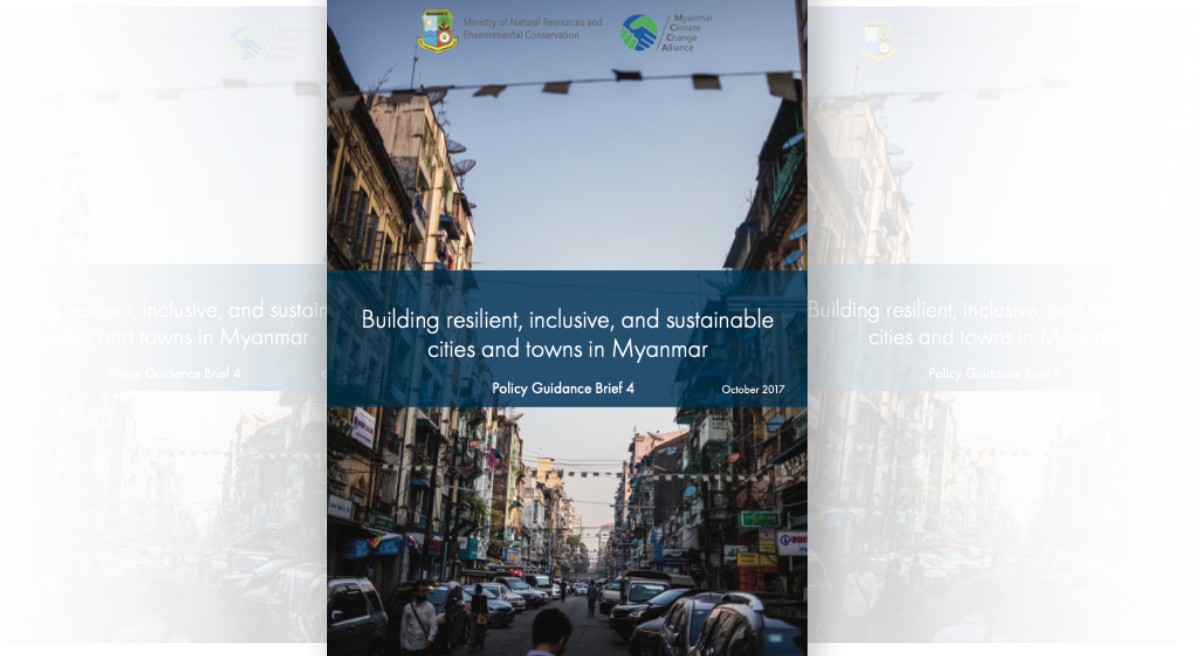Policy Guidance Brief 4: Building Resilient, Inclusive and Sustainable Cities and Towns in Myanmar, 2017
The Guidance Brief is a tool to effectively address climate change in Myanmar by aiding the understanding of key sectoral challenges, strategic objectives and specific actions. Climate change is expected to have significant negative impacts on urban centers in Myanmar, including impact on urban infrastructure and services, increased rural-urban migration, enormous socio-economic costs and health implications. Unless addressed, these impacts will impede the country’s development. Cities and towns in Myanmar are exposed to recurring rapid onset of natural hazards, such as cyclones and floods. Urban areas will increasingly lose assets and lives to climatic hazards. Myanmar should follow two main streams of action. First, it can reduce climate vulnerability by fostering climate-informed urban planning and promoting disaster resilience. Second, it can engage in reducing new emissions through compact urban development and low-carbon construction technologies. The expected results to achieve this outcome are: (i) town and city residents have access to resilient infrastructure and services; (ii) climate change resilience, low-carbon development and socially inclusive approaches are defining elements of urban planning and development, providing mitigation and adaptation co-benefits; (iii) new buildings are designed and constructed to be energy and resource efficient, and resilient to natural hazards.
